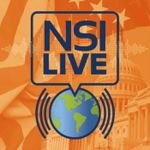Tech 2020/21: Allies, Enemies, and the Homefront Part 3: The National Security Implications of Antitrust
On Tuesday, October 19, 2021, as part of NSI’s Tech Innovation and American National Security project, NSI hosted the third panel of a four-part series examining the national security implications of antitrust challenges at home and abroad. This third event took a look at how U.S. adversaries are addressing antitrust questions related to the tech industry as well as the implications of such efforts for our national security.
Our panel features Maureen Ohlhausen, Matt Perault, and Alex Petros, and was moderated by NSI Founder and Executive Director, Jamil N. Jaffer.
Adversarial nation-state governments, such as China’s, are known to bolster their own economy through government financing of certain private sector industries, including companies in the tech industry, in order to effectuate national goals, including national security related goals. In particular, while China has encouraged rapid growth in its domestic tech sector in a bid to challenge its biggest economic competitor—the United States—it has at times, placed a heavy regulatory hand on both foreign and domestic tech companies, including using the levers of antitrust policy at home. China’s antitrust challenges are seen by many to have little to do with protecting competition; rather, Beijing’s antitrust and other policies appear to punish companies and executives that don’t adhere to the party line. This panel will look at the ways in which China and other adversarial nations both encourage and discourage foreign and domestic tech competition and how such nations choose its antitrust targets.
Hosted on Acast. See acast.com/privacy for more information.
